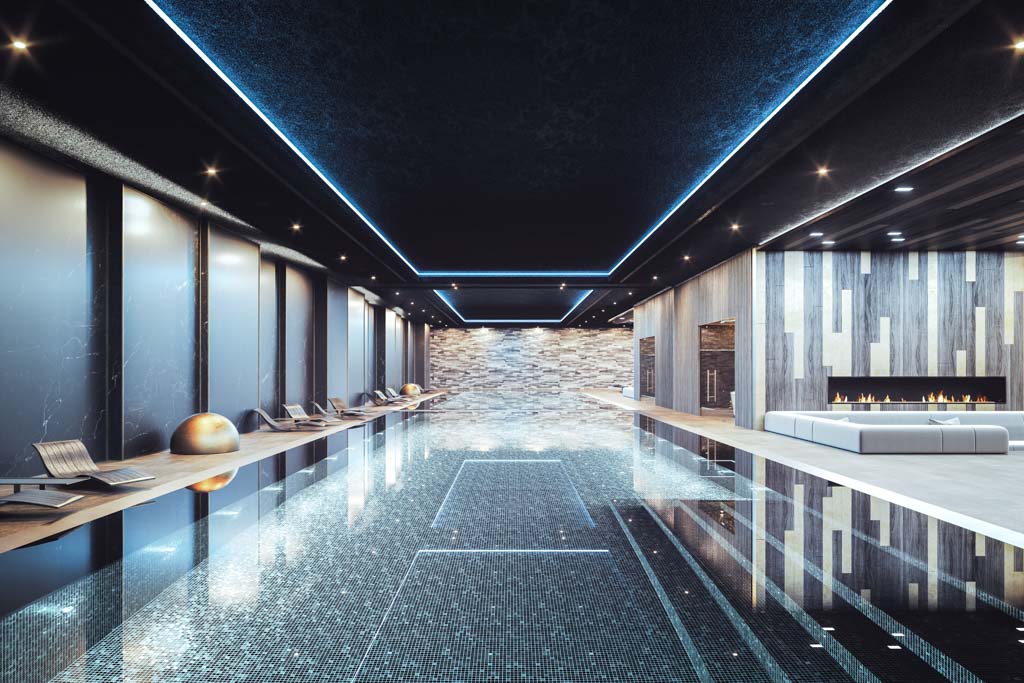High-end gyms that require letters of reference and lengthy interviews before accepting a member?
I’m all for it—even if The New York Times is throwing a little shade on the concept.

Here’s the March 25 article (paywalled for some readers): “Think Getting Into College Is Hard? Try Applying for These Gyms.”
In the article, Danielle Braff profiles a number of gyms that carefully screen prospective members, accept limited numbers of clients and charge premium rates for top-end services that often go beyond just training or access.
The tone of the article is generally neutral, but readers will sense a slight undercurrent of criticism: “In the last four years, about a dozen fitness centers (though some owners may prefer to call them ‘wellness destinations’ or ‘social wellness clubs’) have opened nationally that require letters of referral, long-winded applications, interviews and a deep dive through your social media to decide if you are fit to be fit.”
That last phase—”decide if you are fit to be fit”—is a clear statement of bias, and it’s not needed. A business of any sort must find ideal clients who want what the business provides and are willing to pay for it. This is not a new or exclusionary concept.
What these high-end gyms are charging might surprise you. But it might not if you recall that US$377 was the minimum to earn a spot on Two-Brain’s February Top 10 leaderboard for average revenue per member per month. (You can see it here.)
What Are Ultra-Posh Gyms Offering?
Here’s a quick look at some of the businesses profiled in the New York Times article:
Heimat—This one is billed as a “private fitness community that’s more than limitless fitness classes and uplifting spa treatments.” Heimat features classes and equipment plus a roof-top pool, co-working areas, spa services, dining and more. All-access membership is listed as $350 a month, which actually seems low.
Remedy Place—Tagline: “The world’s first social wellness club.” Amenities include group classes (meditation, breathwork, stretching, etc.), red-light beds, cryotherapy, contrast suites, infrared saunas, lymphatic compression gear, vitamin drips, oxygen chambers and more. The all-access rate is $2,500 a month at the West Hollywood, California, location and $2,750 at the Flatiron, New York, location.
Ghost—One-liner: “Your new home for wellness.” This sleek place is right out of a “John Wick” movie set. It’s exclusively for “the creative, entrepreneurial and professional leaders of New York City.” The 12-month rate paid up front is $3,300 ($275 per month) and includes access, two private sessions per month, unlimited Pilates and yoga, access to therapy devices and more. Again, this rate is is surprisingly low. Ghost provides 24 private training sessions per year with membership. The listed rate for a private session: $125—so 24 sessions equal $3,000, just 300 bucks less than the annual package that includes everything else. More perspective: One gym on our February leaderboard charges $120 for a PT session.
Forma Pilates— From its website: “An exclusive, boutique-style studio that specializes in private and semi-private sessions.” Rates are not listed on the site. Forma has studios in L.A. and New York, and membership is by referral only. That’s not a bad thing: One of the gym owners on our leaderboard actually couldn’t recall if he’s currently running Facebook ads because his referral network is so strong that he doesn’t need to spend much on paid advertising.
Monarch Athletic Club—Pitch: “health and wellness reimagined.” The facility looks like a high-end microgym or functional fitness studio. Membership benefits include personal training, mobility training, strength testing and nutrition counseling, as well as preventative medicine, physical therapy, metabolic panels, medical evaluations, and more. The all-access pass (waitlist currently in place) is $2,000 a month, but it includes unlimited PT and therapy, as well as 24/7 physician access. Some people would no doubt pay $2,000 a month just for the doctor on call.
Create Value
None of the rates and service packages listed above shock me, and I’m not put off by the concept of screening processes on intake, either.
While The New York Times is presenting these businesses as rare birds, they’re not rare or weird at all if you own a microgym. The owners of Ghost, Heimat and the others have just carefully selected niche audiences and are working hard to provide tailored service packages that create value.
Two-Brain Business teaches microgym owners to follow the same plan: Determine what you need to make, set your prices, create value that justifies the rates by solving problems for clients, and implement a precise plan to acquire and retain high-value members. We even supply all the resources that will help you in that process, as well as an experienced, expert mentor who can help you tailor the plan to your unique business.
The result of mentorship? Our February leaderboard for average revenue per member runs from $377 to $812. These are gyms that specialize in fitness and nutrition coaching first and foremost, not medical care and recovery devices. Some might offer speciality services, but they aren’t the kind of facilities that offer post-workout shakes served in an infrared sauna next to a plunge pool.
The lesson here is that you can charge a premium rate for super-high-end fitness and wellness services. And you can also charge a premium rate for fitness and nutrition coaching if you create value.
The key is pricing your services—whatever they are—to ensure profitability, creating value, acquiring clients and retaining them for years.
Two-Brain can help you do that whether you want to open an exclusive wellness and recovery facility in Manhattan or a personal training studio in Minneapolis—or Melbourne.
To find out more about how a mentor can help you build a business with incredible average revenue per member, click here to book a call.

